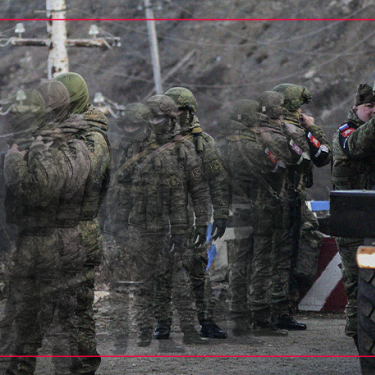After three-month blockade, RSF urges Azerbaijan and Russian peacekeepers to let reporters visit Nagorno-Karabakh

The Lachin corridor linking Armenia with Nagorno-Karabakh, a separatist enclave in neighbouring Azerbaijan with a mainly Armenian population, will have been blocked for three months on 12 March. Reporters Without Borders (RSF) calls on the Azerbaijani authorities and Russian peacekeepers to allow reporters freedom of movement so that they can cover this blockade and its serious humanitarian impact.
Nagorno-Karabakh is turning into a news and information black hole because purported Azerbaijani environmental activists have been blocking all traffic along the Lachin corridor, the only road linking Armenia to the enclave, for the past three months, thereby causing a major humanitarian crisis. Only Azerbaijani journalists from state or pro-government media can cover the demonstrations on the corridor. The few independent local media are not allowed through the checkpoints.
The few journalists who have been escorted to the point where the road is blocked have not been able to report freely. When David López Frías, a reporter for the Spanish newspaper El Periódico de España, visited Azerbaijan in late February, he spent an evening on the Lachin road accompanied by “guides” from Azerbaijan’s state-owned Global Media Group, who let him interview the protesting "environmentalists” without any problem, but not any Russian peacekeepers. It was not possible either to meet with any members of the Armenian population, on the other side of the Russian checkpoints.
Futhermore, the Azerbaijani state news agency Azertac published an interview with López in several languages in which he was deliberately misquoted. It quoted him as saying: “Vehicles pass here without any problems. You just see people demonstrating to protect nature.” When RSF contacted López, he said: “I said the exact opposite. I clearly saw a blocked road.”
“This barefaced lie by a government-controlled media outlet is further evidence of a desire on the part of the Azerbaijani authorities to manipulate national and international public opinion. They not only violate the 2020 ceasefire agreement by supporting these ‘eco-activists’ but they also prevent any accurate coverage of the Lachin corridor blockade and its terrible humanitarian repercussions. RSF reminds the Azerbaijani government and Russian peacekeepers of their international undertakings and urges them to restore free access to the region for journalists.
On the Armenian side, independent media have no access to the corridor or the enclave, and rely on photos and video provided the Azerbaijani state media and the local TV channel in Nagorno-Karabakh, and on what residents say, which is often hard to verify. Few media outlets have correspondents in the enclave. The news site Civilnet has a bureau with four journalists in Stepanakert, the enclave’s capital, but no other independent media outlet does.
Conversely, Azerbaijani journalists wishing to travel to the Nakhchivan autonomous republic, located southwest of Armenian territory, are forced to bypass Armenia via Iran or to fly there. No agreement has been reached between the two sides since the 2020 ceasefire to open a corridor directly linking this region to Azerbaijan.
This is by no means the first time reporters have had difficulty moving about in the enclave, which was the subject of fierce fighting in September 2020 and where deadly skirmishes are still common.
The purported purpose of the blocking of the Lachin corridor by Azerbaijani “eco-activists” since 12 December is to prevent work at a gold mine. But many investigations point to the Azerbaijani government’s total involvement in the blockade. Several international actors have blamed President Ilham Aliyev’s government and the International Court of Justice ordered Azerbaijan to remove the blockade. Only Red Cross humanitarian convoys are currently allowed through the corridor.
